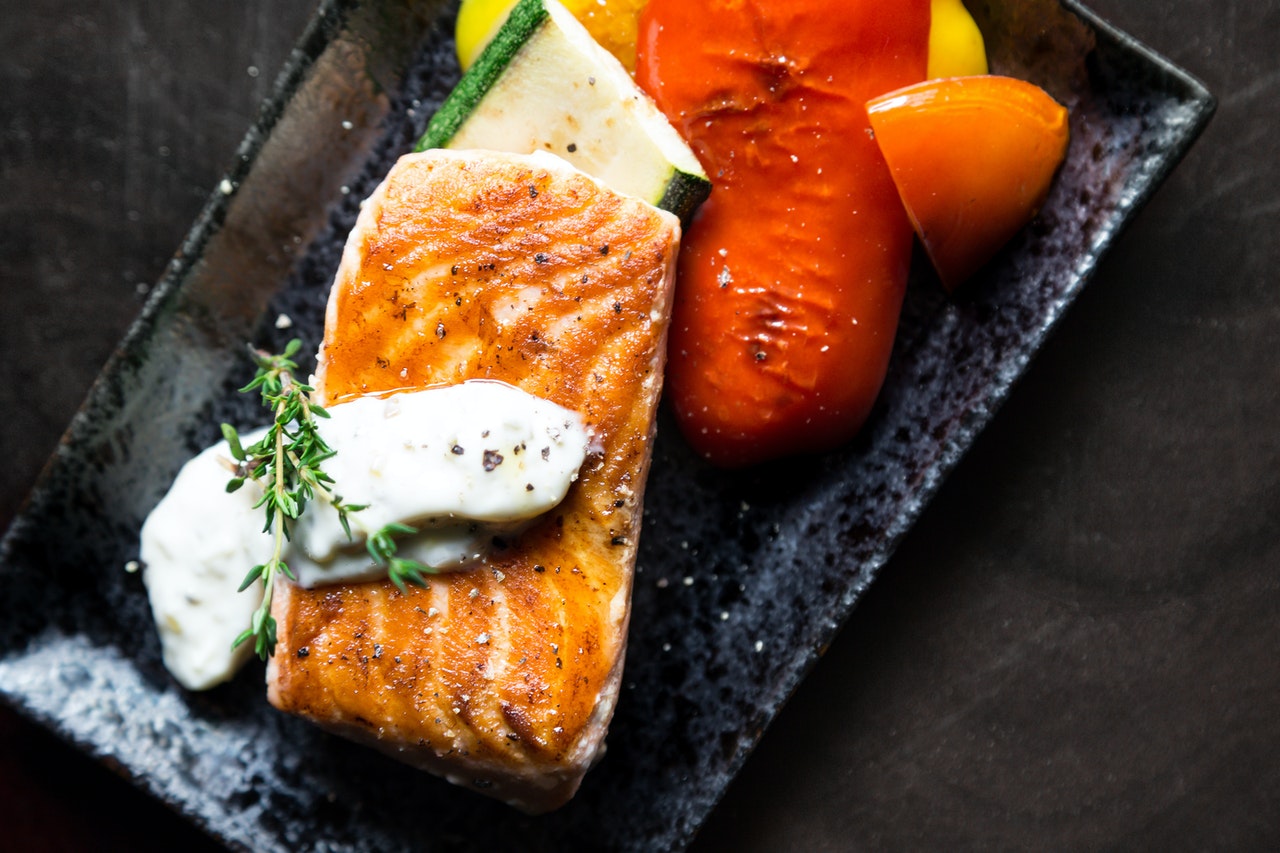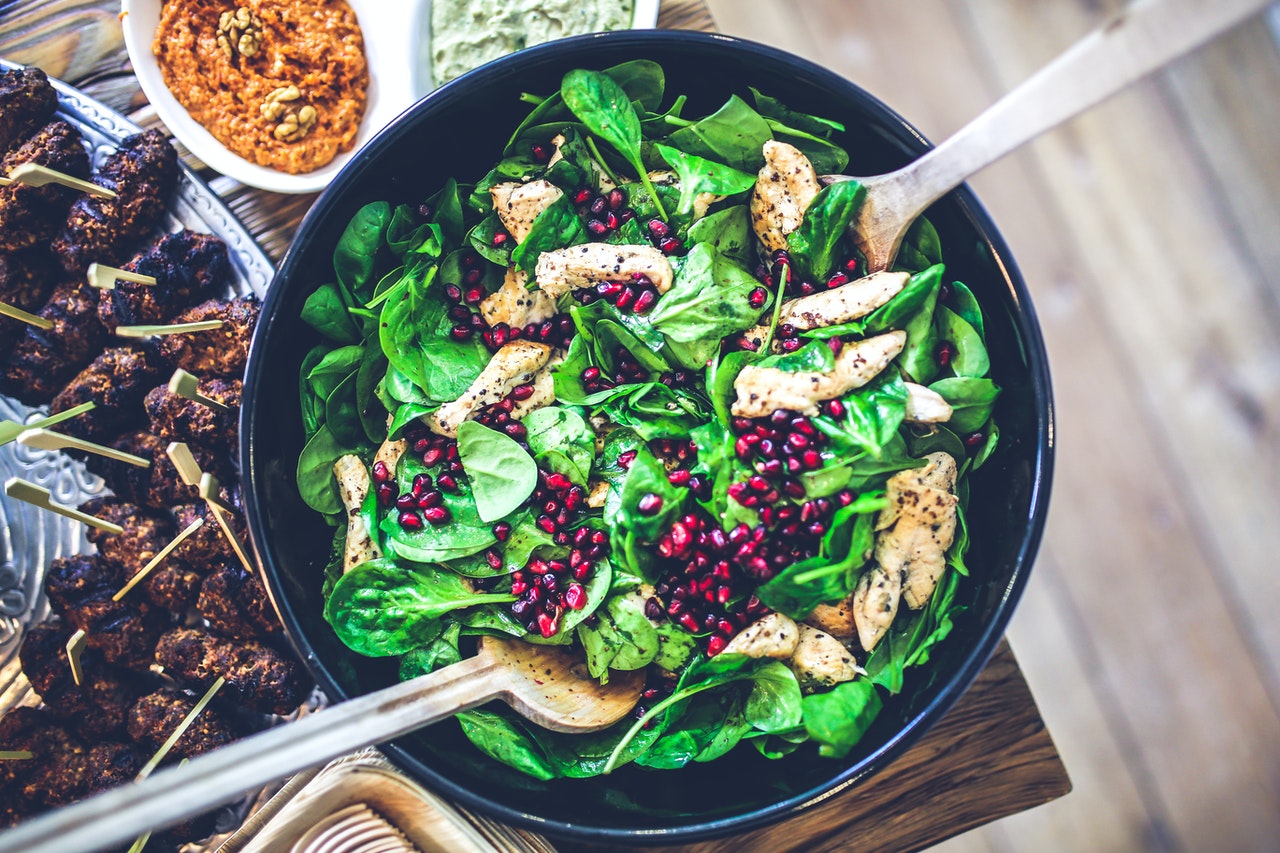We understand more and more of the impact our lifestyle has on our skin which provides us with the power to correct skin issues like acne and preserve the youth of the skin. What we also know is that both internal and topical skin nutrition can positively impact our skin, meaning we need to be concerned with both what we put in our bodies and what we put on our skin.
To make it easy for you to navigate skin-friendly foods versus those that are well, not, we’ve put together a list of foods to stock up on and foods to eat less of, based on common skin challenges.
Breakouts and Congestion
Foods to include:
Vitamin A supports healthy cell regeneration. It has suggested that Vitamin A deficiency may increase your risk of developing acne. Vitamin A is found in both animal and plant foods such as beef, fish, eggs, dark-green leafy vegetables and deep yellow/orange vegetables and fruits. Vitamin A is also a popular ingredient used in skincare. The most powerful form of Vitamin A is Retinol. Using Retinol will help clear the pores, but it also treats the skin discolouration leftover from breakouts and improves skin firmness, making it an excellent choice for breakouts and ageing concerns. Dermalogica’s Overnight Retinol Repair treatment contains microencapsulated Retinol to ensure the very best results.
Food to eat less of:
Eating lots of high glycemic index foods has been connected with acne. Food high on the GI scale (more than 70) spike hormones that turn on the oil glands, resulting in more congestion and breakout potential. So what are some common culprits? Well, think white foods – white bread, white rice, white pasta. Try swapping these up for lentils, pasta, basmati rice and pita bread. But remember it’s about balance, so pay more attention to the portions and frequency of foods, not just their GI score.
Diary has been commonly linked to acne because dairy products contain hormones that can increase oil production. Also, whey protein, which is a dairy by-product increases insulin levels in the skin, another driver of excess oil. So if you suffer from breakouts, try cutting back the dairy and your (whey) protein shakes, and look for alternatives.
Premature Skin Ageing
Foods to include:
Vitamin C is required for the skin to make collagen, a major component that gives our skin its structure and elasticity. You’ll find rich sources of Vitamin C in oranges, papaya, pineapple, raspberries, blueberries, lemon juice, spinach, strawberries, kiwifruit, papaya, broccoli, Brussels sprouts, cauliflower and kale to name a few! With that being said, the topical application of vitamins can help bolster the benefits for the skin. Dermalogica’s BioLumin-C Serum uses an ultra-stable Vitamin C complex that remains potent in the skin and helps boost the skin’s natural defences. This Supercharged Vitamin C is now available for the eyes as well as the face.


Food to eat less of:
The same sugar that provides energy for our cells can also react with proteins, including the skin’s collagen. This reaction results in the formation of Advanced Glycation End-products (AGEs), which can contribute to loss of elasticity, wrinkles, inflammation, and accelerated ageing. We need a certain level of sugar in our diet, but foods and drinks with high levels of added sugar are going to fast forward the clock!
Cut down on the grease - foods fried in oil at high temperatures generates free radicals. These unstable molecules can wreak havoc on our skin and lead to inflammation, uneven skin tone and premature skin ageing. On the flip side, antioxidants such as Vitamin A and C help prevent damage by giving free radicals what they want before they attack your skin.
Skin Sensitivity and Inflammation
Foods to include:
Essential fatty acids, especially Omega-3, are vital for protection and hydration. We can only source fatty acids from our diet; they are not made by the body. Studies have shown that diets low in fatty acids can show up as itchiness, inflammation, dryness and dehydration. Foods that contain Omega-3 fatty acids include salmon, mackerel, anchovies, walnuts, flaxseed and green leafy vegetables. Another great way to load up on essential fatty acids is by taking fish oil supplements daily. Plant-based oils in skincare are also rich in essential fatty acids and help to repair and protect sensitive skin. Dermalogica’s UltraCalming range uses Evening Primrose, Sunflower Seed and Avocado extracts to strengthen the skin.
Food to eat less of:
People who suffer from inflammatory conditions often report a dietary link. For example, spicy food, cinnamon, tomatoes, citrus fruits, chocolate and alcohol have been known to aggravate rosacea. New research has also suggested that those with celiac or gluten sensitivities are affected more by conditions such as eczema, psoriasis, acne, chronic dry skin and hives. Reducing gluten intake for some can help to alleviate inflammatory symptoms.
As we become more in the know about gut health, we are too learning about the link between the gut and the skin. A poor diet, and therefore a lack of nutrients, can lead to dull, tired-looking skin. Likewise, food allergies or intolerances can play out as skin rashes or angry acne. Incorporating probiotics and prebiotics into your diet will help keep your gut healthy, and if experiencing sensitivity, you may want to keep a food diary to see if there could be a link or opt for a food allergy test.
So you can see that diet really does have a knock-on effect on our skin, and that by combining specific nutrients from both our diet and skin care, we can manage skin challenges and improve the health and age of our skin.





